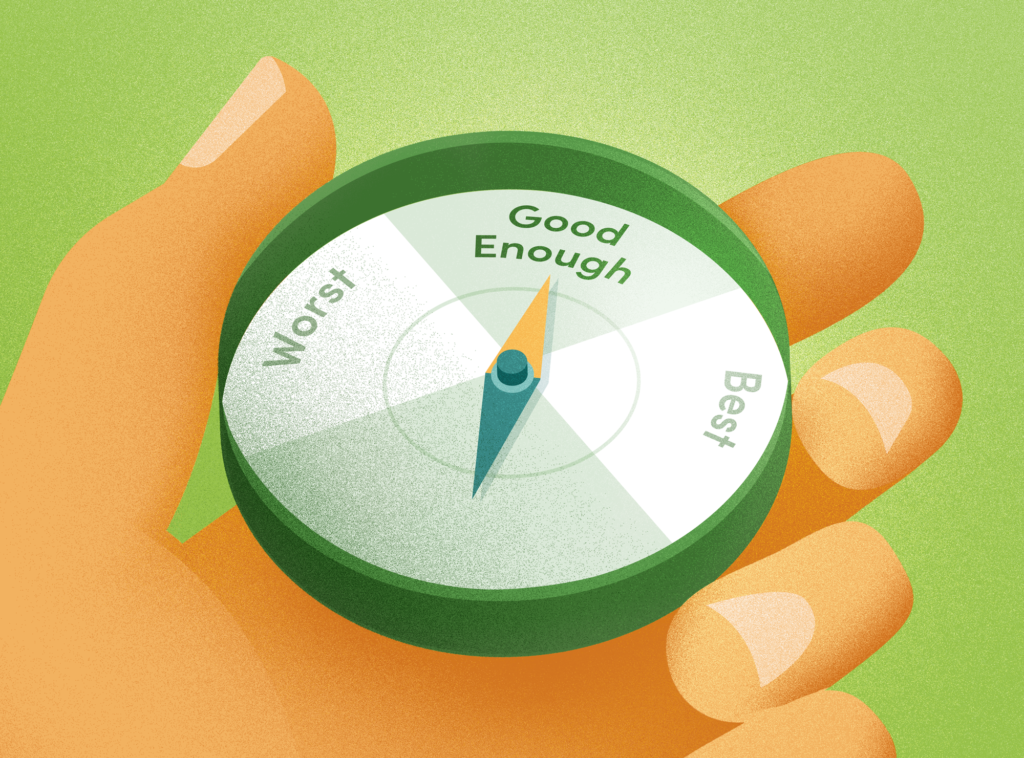
This week, I’ve asked my friend Barry Schwartz to share his tip of the week.
Have you ever heard a parent say, “I’m fine with whatever is good enough for my kids”?
I sure haven’t. When it comes to our kids, only the best will do! The best schools, the best dance classes, the most nutritious foods. When it comes to ourselves, we might sometimes settle for good enough. But good enough is never good enough for our kids.
This point of view is common, but it’s a mistake. Settling for what’s good enough makes the process easier and leaves people more satisfied with the choices they make. I call people who look for good enough “satisficers,” and research has shown that satisficers are more content with their choices—and happier with their lives in general—than people who are always aiming for the best (people I call “maximizers”). So being a satisficer, and modeling satisficing for your children, is in my view a very wise strategy.
But in a world disrupted by the pandemic, the stakes are higher, and every choice seems wrong. Should you send your child to school in person if it’s offered, or go remote? Distance learning would decrease the risk of catching the coronavirus, but in-person instruction may be more effective. What about playing soccer? Your child needs exercise and loves the camaraderie, but it’s a sport with close physical contact. How about visiting elderly grandparents? And how on earth can you answer these questions when you have little idea what tomorrow will bring?
You can pretend that you know the answers to these sorts of questions, but it’s better to own up to your uncertainty and adopt a decision strategy that allows you to cope with it. And what is that strategy? I call it “robust satisficing.” You look for options that will produce good enough outcomes (the satisficing part), then ask yourself which of the options you face will yield a good enough result under the widest set of future states of the world (another spike in coronavirus cases, a less-than-perfect vaccine, a teenager growing more and more depressed with the lack of social contact, etc.). This is the robustness part.
Try to ask yourself, “What can I do to make my child’s life satisfying enough no matter what the future holds?” This, I think, is the right question to consider when circumstances are less than certain. In these times, it may be the only question to ask.
Satisficingly yours,
Barry
Barry Schwartz, the author of The Paradox of Choice, is an emeritus professor of psychology at Swarthmore College and a visiting professor at Haas School of Business, University of California, Berkeley.
